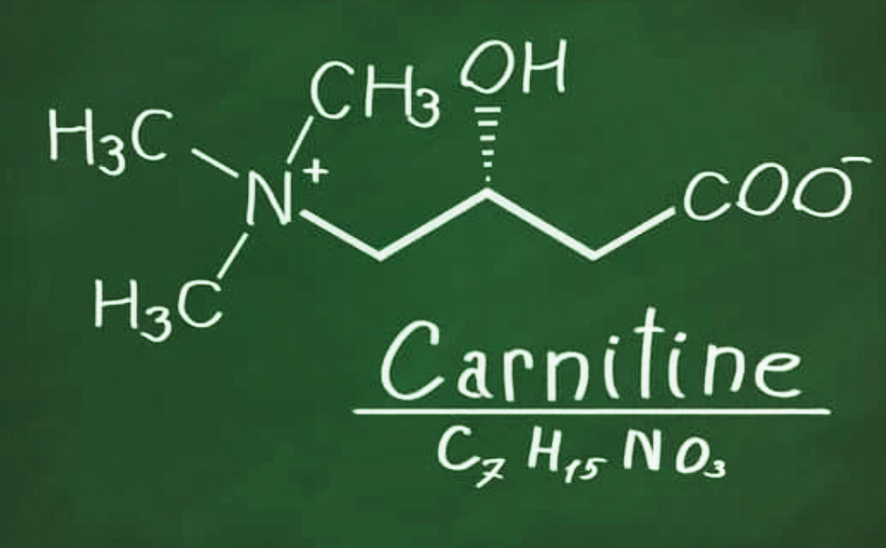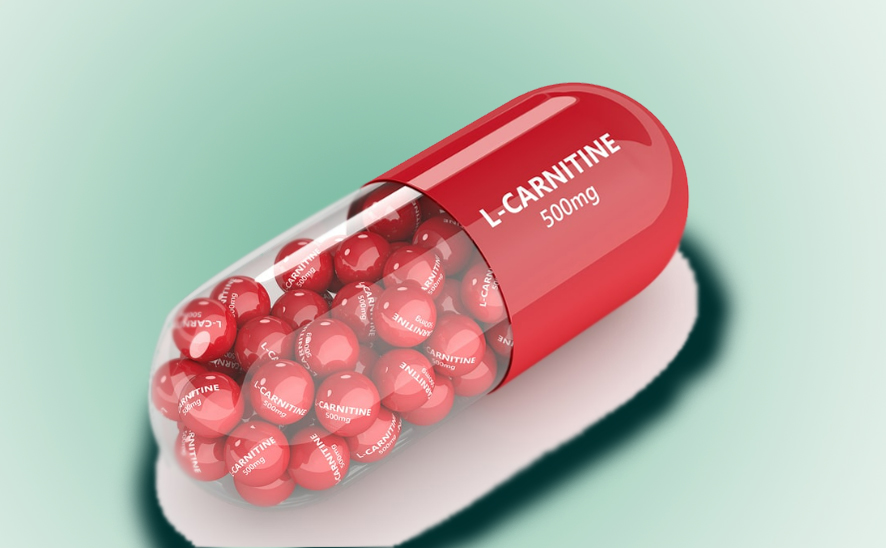L-Carnitine Is A Naturally Occurring Amino Acid Derivative That Plays A Crucial Role In Energy Metabolism

L-carnitine is a naturally occurring amino acid derivative that plays a crucial role in energy metabolism. It’s synthesized in the body from the amino acids lysine and methionine. Here are some of the key benefits associated with L-carnitine:
Energy Production: L-carnitine plays a fundamental role in the transport of fatty acids into the mitochondria, the energy-producing organelles within cells. Once inside the mitochondria, fatty acids undergo beta-oxidation, a process that generates energy in the form of ATP (adenosine triphosphate). By facilitating fatty acid transport, L-carnitine helps optimize energy production, particularly during periods of increased energy demands, such as exercise.
Fat Metabolism: L-carnitine is often marketed as a supplement for weight loss and fat burning. While evidence supporting its efficacy for weight loss is mixed, some studies suggest that L-carnitine supplementation may enhance fat metabolism and promote the utilization of fat as a fuel source during exercise. This can potentially benefit individuals seeking to improve body composition or enhance exercise performance.
Muscle Recovery: L-carnitine supplementation may support muscle recovery and reduce exercise-induced muscle damage. By enhancing fatty acid oxidation and energy production, L-carnitine may help replenish depleted energy stores and reduce muscle fatigue following intense or prolonged exercise sessions. This could contribute to faster recovery and improved exercise performance over time.

Cardiovascular Health: L-carnitine has been studied for its potential cardiovascular benefits. It may help improve cardiac function, enhance exercise tolerance in individuals with heart conditions, and reduce symptoms of angina (chest pain) by increasing myocardial energy production and improving blood flow to the heart. Additionally, L-carnitine supplementation may modestly lower blood pressure and improve lipid profiles, although further research is needed to confirm these effects.
Brain Function: Some research suggests that L-carnitine may have neuroprotective properties and support cognitive function. It may help maintain mitochondrial function in the brain, protect against oxidative stress, and improve neurotransmitter signaling. These effects could potentially benefit individuals with neurological conditions or age-related cognitive decline, although more studies are needed to fully understand the impact of L-carnitine on brain health.
Male Fertility: L-carnitine has been investigated for its potential role in male fertility. It is believed to support sperm health and motility by providing energy for spermatozoa and protecting them from oxidative damage. Some studies suggest that L-carnitine supplementation may improve sperm quality and increase pregnancy rates in couples undergoing fertility treatment.
Blood Sugar Regulation: L-carnitine may help improve insulin sensitivity and glucose metabolism in individuals with insulin resistance or diabetes. By enhancing fatty acid oxidation and reducing lipid accumulation in tissues, L-carnitine supplementation may support glycemic control and reduce the risk of complications associated with diabetes.

Overall, L-carnitine plays a diverse and important role in various physiological processes, including energy metabolism, fat metabolism, muscle function, and cardiovascular health.
Talenezhad N, Mohammadi M, Ramezani-Jolfaie N, Mozaffari-Khosravi H, Salehi-Abargouei A. Effects of l-carnitine supplementation on weight loss and body composition: A systematic review and meta-analysis of 37 randomized controlled clinical trials with dose-response analysis. Clin Nutr ESPEN. 2020 Jun;37:9-23. doi: 10.1016/j.clnesp.2020.03.008. Epub 2020 Apr 18. PMID: 32359762.
Alhasaniah AH. l-carnitine: Nutrition, pathology, and health benefits. Saudi J Biol Sci. 2023 Feb;30(2):103555. doi: 10.1016/j.sjbs.2022.103555. Epub 2022 Dec 30. PMID: 36632072; PMCID: PMC9827390.
Gnoni A, Longo S, Gnoni GV, Giudetti AM. Carnitine in Human Muscle Bioenergetics: Can Carnitine Supplementation Improve Physical Exercise? Molecules. 2020 Jan 1;25(1):182. doi: 10.3390/molecules25010182. PMID: 31906370; PMCID: PMC6982879.









